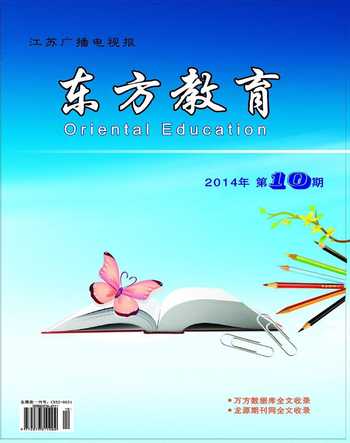Research on Task—Based Language Teaching
2014-04-29赵玲玲
赵玲玲
【Abstract】This paper begins with a brief introduction to Task-Based Language Teaching(TBLT).The Task-Based Language Teaching(TBLA)has gained popularity in the field of language teaching since the last decade of the 20th century.This paper mainly illustrates the definition,importance and approaches of Task-Based Language Teaching(TBLA).
【Key Words】Language teaching; communicative methodology; tasks; task-based approach; process approach; language learning
![]()
Task-based approach is a language teaching methods which has been used since 1980s.Prabhu(1987)deserves credit for originating the task-based teaching and learning.He based his theory on the concept that effective learning occurs when students are fully engaged in a language task,rather than just learning about language.For the past 20 years,task-based language teaching has attracted the attention of second language acquisition researchers,curriculum developers,educationalists,teacher trainers and language teachers worldwide.
In English teaching classrooms,the teachers concern for meaning-based activities and the researchers investigation of patterns of interaction suggest a task-based approach to foreign language instruction.Task-based instruction takes a fairly strong view of communicative language teaching.It is the task that drives the learners system forward by engaging acquisitioned processes(Long & Crookes,1993).It is the task that is the unit of syllabus design(Long & Crookes,1991).A task-based approach sees the learning process as one of learning through doing; it is by primarily engaging in meaning that the learners system is encouraged to develop.
As a language teacher these days,you will be familiar with tasks to at least some extent.Most modern course-books are based on the principles of Communicative Language Teaching(CLT).CLT aims to help learners use language in real communication and this real communication often takes the form of tasks.A task-based approach also requires the learners to do tasks.Task-based language teaching sees tasks as giving learners direct and immediate experience of language use in communication.Focused tasks together with pre-tasks and feedback on tasks allow learners to notice language forms,to use them under real operating conditions and to receive feedback on their language use.Priority is given to getting something done through language rather than to practicing predetermined language items.
In the reading class,pre-reading tasks aim to provoke readers interest,create readers purpose,elicit and/or provide appropriate background knowledge,and guarantee that the students start to read on the right track.Tasks in this phase aim to train students in applying reading strategies,and improve their control of English.This will save much time for more creative tasks.Tasks in language focus aim to check the students comprehension,lead them to a deeper understanding of the text,and increase their grasp of English.
The task-based approach has gained popularity in the field of language teaching in the last decades of the 20th century.It is widely believed that communicative tasks can facilitate the learning process by engaging students in negotiation of meaning in the form of small group work(Ellis 1997;Skehan 1998;Nunan 2004;Littlewood 2004,2006)
Tremendous changes have been made and innovative ideas have been added to the new curriculum(the Standards)regarding educational concepts,curricular aims and objectives,teaching methods,teaching content,implementation,and assessment.Particularly,an innovative teaching approach —the task-based approach to English language teaching —was recommended and greatly encouraged in the new curriculum.
References:
[1]Ellis,R.Task-based language learning and teaching.2003.Oxford:Oxford University Press.128-136
[2]Lightbown,P. Can they do it themselves? In R.Courchene et al(Eds.)Comprehension based language teaching:Current trends.1992.Ottawa:University of Ottawa Press.
[3]Mackey,A.(1999).Input,interaction and second language development:An empirical study of question formation in ESL.Studies in Second Language Acquisition 21:557-587.
